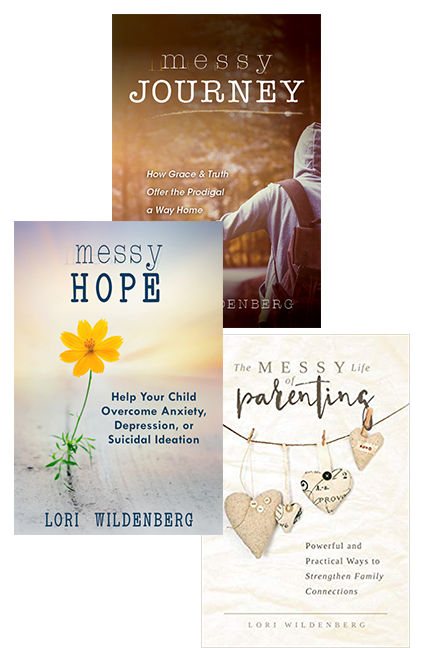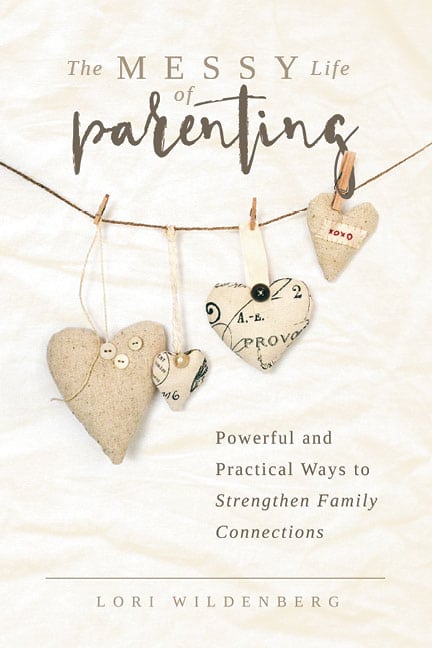
Talking with littles to teens about Easter can be a challenge for moms and dads. The reason we believe in Jesus is the empty tomb. A conversation containing elements of betrayal, suffering, torture, and death isn’t easily navigated. In 1 Corinthians 15:14 Paul tells us there is no point to our faith if there is no resurrection, “And if Christ has not been raised, our preaching is useless and so is your faith.” No death, no resurrection, no Christianity, no hope.
Wisdom and sensitivity are required when talking about a resurrected Jesus. Take it slow. Let your kids reflect on the facts and the emotions. Thinking, pondering, and feeling move the child from head to heart knowledge. Be mindful of your child’s age and personality. Here are some tips that will help with what to say and when to say it.
- FACTS FIRST:
- Jesus was born to Mary.
- Jesus lived on earth to show us who God is (John 14:9).
- Jesus performed miracles.
- Jesus talked about the kingdom of God.
- Jesus died on the cross.
- Jesus rose again.
- Jesus is coming back.
- PRESCHOOLERS:
Be general with preschoolers. Say, “Jesus died and then with God’s strong power, he came back to life.” Avoid discussing how he was crucified. With young or sensitive children avoid the violent and gory details that come with Good Friday.
- ELEMENTARY:
Older kids need to hear the cross was Christ’s choice. Jesus was not a martyr or a victim. Jesus was a victor! Say, “Jesus chose to be punished for things others did.” Follow up with an example. “This would be like if you chose to take a punishment or consequence for the thing your brother did even though he had just been mean to you. That is a sacrifice.” Add, “Jesus was innocent of the charges brought against him. Christ’s death on the cross was a sacrifice filled with grace. And he did this so we wouldn’t have to. That is big amazing love.”
- CONNECT:
Personalize Jesus’ experiences so your child can relate to him. Focus on relationship. Christ has walked in our shoes. He fully understands and empathizes with our suffering and struggles (Hebrews 4:15). When your child has been hurt by a friend, it would be a good time to discuss that Jesus knows how that feels (Peter’s denial). If your child has been betrayed by a friend, tell about Judas’ betrayal of Jesus. Jesus knows what it is like to be tired, hated, and misunderstood.
- FAIRNESS FACTOR:
Elementary kids want to understand the crucifixion in terms of fairness. They may say, “That’s not fair that Jesus had to die when it was other people who committed the sins.” This is the time to move from fairness to a discussion of love, grace, and forgiveness. “It’s not fair, but it is loving. Because Jesus died for all, that means he died for you and me too. He died for us because no one is perfect, only Jesus. We all mess up. We are all selfish. Even though we are not perfect, because of Jesus’ sacrifice, we are forgiven. We just have to accept his invitation to believe in him, follow him.” This could be the time to bring in the ABCs of faith: Admit you are a sinner, Believe Jesus died and rose again, Confess your sins and commit to follow him.
- ADDRESS WHY?
Older children want to understand why Jesus had to die. Talk about Jesus being the perfect sinless sacrifice so all believers can stand before the Lord with confidence. Jesus wants us to be part of his kingdom—a place where there is no more sickness, death, or hunger. His death was an act of love. His resurrection was a demonstration of his power over life and death.
- TWEEN:
As kids move into the tween years, weave a few more details into the Easter story. Tweens are interested in hearing about Christ’s power. Discuss:
- the religious leaders fear of Jesus.
- Judas was part of the twelve even though Jesus knew he’d betray him.
- The detachment of soldiers, some officials, and some Pharisees fell to the ground before arresting Jesus after Jesus spoke saying, “I am he (John 18: 4-6).”
- In Peter’s attempt to defend Jesus (John 18:10) he cut off the ear of the servant of the high priest.
- While Jesus was being arrested, he healed the servant’s ear (Luke 22:50-51).
- After Jesus gave up his spirit the centurion guard called out “Surely he was the Son of God” (Matthew 27:54).
- TEEN
In the teen years, critical thinking becomes more developed. This is the time to provide details:- Roman guards were experts at death. To be sure Jesus was dead they pieced his side. The blood and water separated. This confirmed death.
- The soldiers were guarding the tomb and knew it would cost them their lives if something happened to Jesus’ body.
- The disciples were scared and didn’t expect Jesus to be resurrected. Thomas didn’t even believe Jesus had risen until he saw Jesus for himself.
- After Jesus rose he was seen by two women, by the twelve, and finally over 500 people saw him.
It’s OK if you don’t know all the answers to your child’s questions about Easter. Crack open your Bible together and read the accounts leading up to the crucifixion and through the resurrection found in Matthew, Mark, Luke, and John.
No matter the age, stage, or sensitivity of your children the main idea to be communicated on Easter is Jesus’ amazing love and sacrifice for us, his children. Focus your message on life—life everlasting. Jesus broke the power of sin and death for all those who believe in Him. He is risen indeed!
If Christ has not been raised, your faith is worthless; you are still in your sins.
1 Corinthians 13:17
This article was written for MTL magazine ( More to Life)
Here are a few more articles that may be of interest to you.
How to Create a Fun and Faith-Filled Easter Basket
Photo by Aaron Burden on Unsplash




